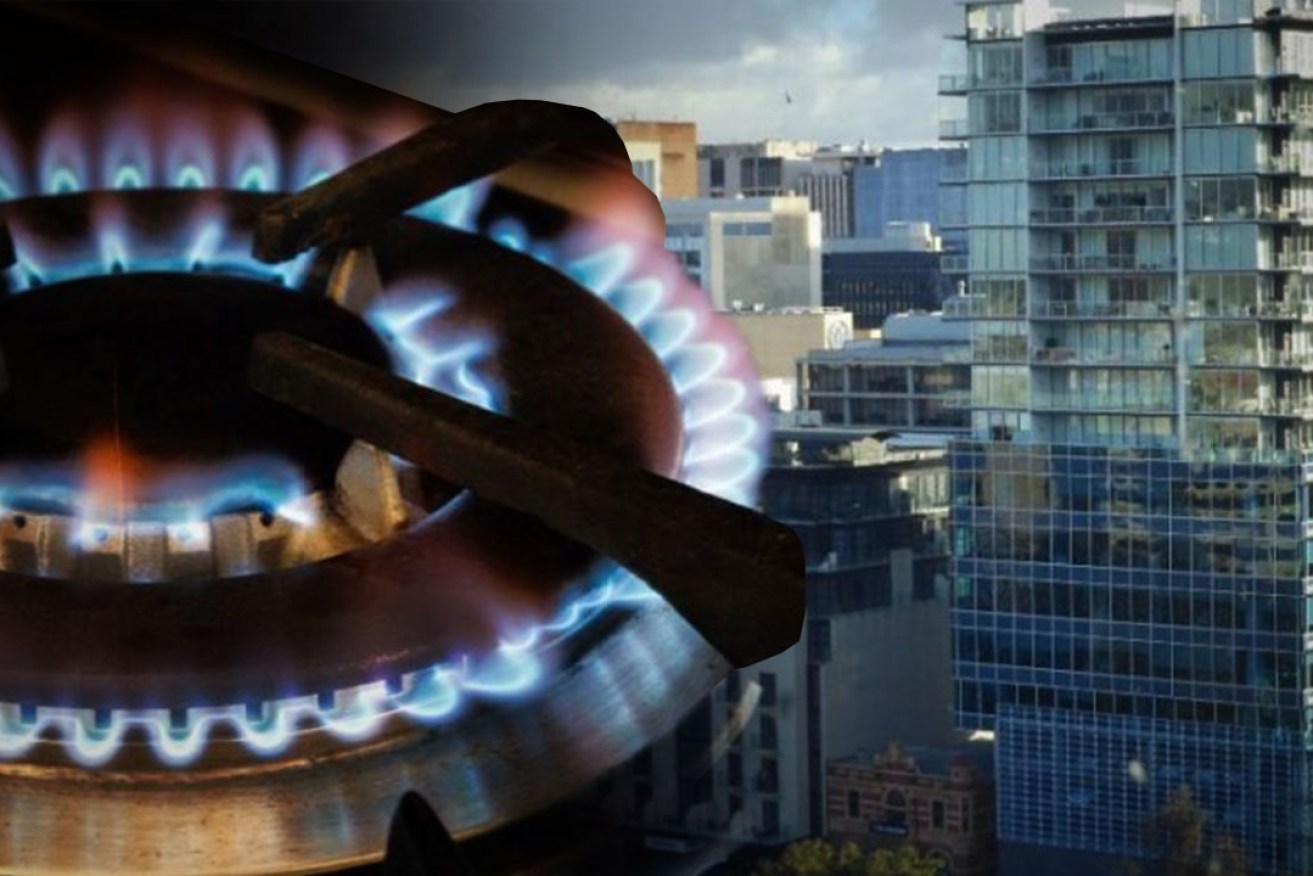Council’s push to wean Adelaide CBD off gas
By 2025, all new houses built in the city should be electrified rather than connected to gas, according to a draft Adelaide City Council climate policy, which outlines a need to electrify 500 gas-connected homes and businesses every year.


Photo: Tony Lewis/InDaily and Angela Skujins/CityMag
Councillors will on Tuesday discuss a draft integrated climate strategy which maps out council’s path towards halving its emissions by 2030 (compared to 2020 levels) and reaching net zero by 2035.
The strategy identifies the transition from gas to electric in buildings as one of the “biggest areas of influence for the next 10 years”.
It also lists as a priority that “all homes and businesses will be electrified and powered by renewable energy”.
Energy use in buildings accounted for 39 per cent of the City of Adelaide’s carbon emissions in 2022, according to the report, with 30 per cent being electricity usage and 9 per cent gas.
The city’s electricity emissions are rapidly declining, the report states, because the state government is transitioning the grid towards renewable energy.
“City of Adelaide seeks to make the most of this world-leading grid through electrification, converting all energy sources to electricity,” the strategy states.
“Once the city’s electricity is 100 per cent renewable, this alone will result in a 35 per cent reduction in the community’s carbon emissions from 2020.
“If all city buildings are electrified, this will increase to a 44 per cent drop in carbon emissions.”
The strategy flags that the council will embark on an “electrification program” in 2024 targeting “harder-to-electrify” apartment and commercial buildings.
But the report also concedes that council does not have any direct control over new building fit-outs, even though “we support all new houses in the city being all-electric from 2025”.
A significant shift towards electrification will likely hinge on a policy shift from the state government, which can ban new gas connections.
In July, a week after the Victorian government announced it would be banning new gas connections from January 1, 2024, Premier Peter Malinauskas said this was “not our policy as it stands”.
A government spokesperson told InDaily today: “The state government is not contemplating a policy of banning gas connections in new home builds.
“The South Australian Government is firmly of the view that gas, as well as hydrogen, is essential to a smooth transition to renewable energy.
“We are on track to achieve around 85 per cent renewable energy by 2025. Without reliance on coal, much of that 15 per cent gap will ultimately be filled by natural gas.”
The percentage of South Australian homes connected to gas is around 56 per cent, according to a July 2021 report by Energy Networks Australia.
Five hundred electrified homes and businesses ‘needed’ each year
Council’s integrated climate strategy also indicates that a significant ramp up in its electrification program is required if it is to meet its net zero city targets.
The report states that between 10 and 20 homes and businesses are electrified with council support each year, but “what is needed [is] 500 homes and businesses electrified each year”.
The council currently offers to cover 50 per cent of appliance electrification costs for residents (up to $1000) and business owners (up to $5000).
A council spokesperson said there are “likely to be many more” than 10 to 20 homes and businesses that electrify each year given some do it privately and without council support.
Funding for the council’s next round of electrification incentives will be decided during the budget process “once Council decides the scale of action it wishes to take”, the spokesperson said.
Dan Cass, executive director of Rewiring Australia, a national not-for-profit that advocates for electrification, said the council was right to target strata corporations in its electrification program.
“It is harder to electrify residential and commercial buildings that have owners corporations so Adelaide City Council is right to work with this sector and help owners and tenants find solutions,” he said.
“Local government has a big role to play in clean energy because it is embedded in the community and can work with residents and businesses to take them on the clean energy journey.
“Councils can use advocacy, funding and zoning and approval powers to accelerate electrification and the uptake of EVs (electric vehicles).
“No one regrets ditching expensive, polluting fossil fuel powered devices for their clean superior electrified alternatives.”
So far, Victoria and the ACT are the only jurisdictions pushing ahead with ban on new gas connections.
The Malinauskas government has touted the blending of gas with hydrogen as a more likely path to cutting carbon emissions.
Australian Gas Networks, the owner of the state’s gas distribution network, is currently undertaking a government-supported trial of this gas mix at the Hydrogen Park SA facility in the Tonsley Innovation District.
“AGIG’s HyP SA facility this year expanded its pilot blended gas program and is currently delivering a 5 per cent renewable gas blend to more than 3700 homes,” the spokesperson said.
“A report published last month showed the potential for this blend to increase substantially.”




